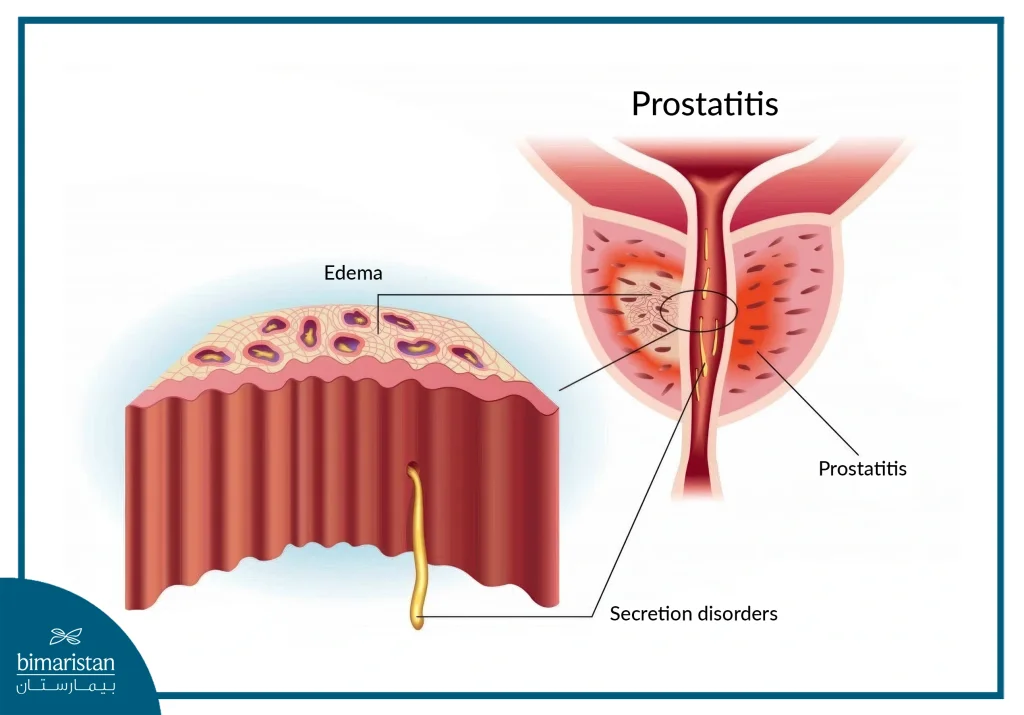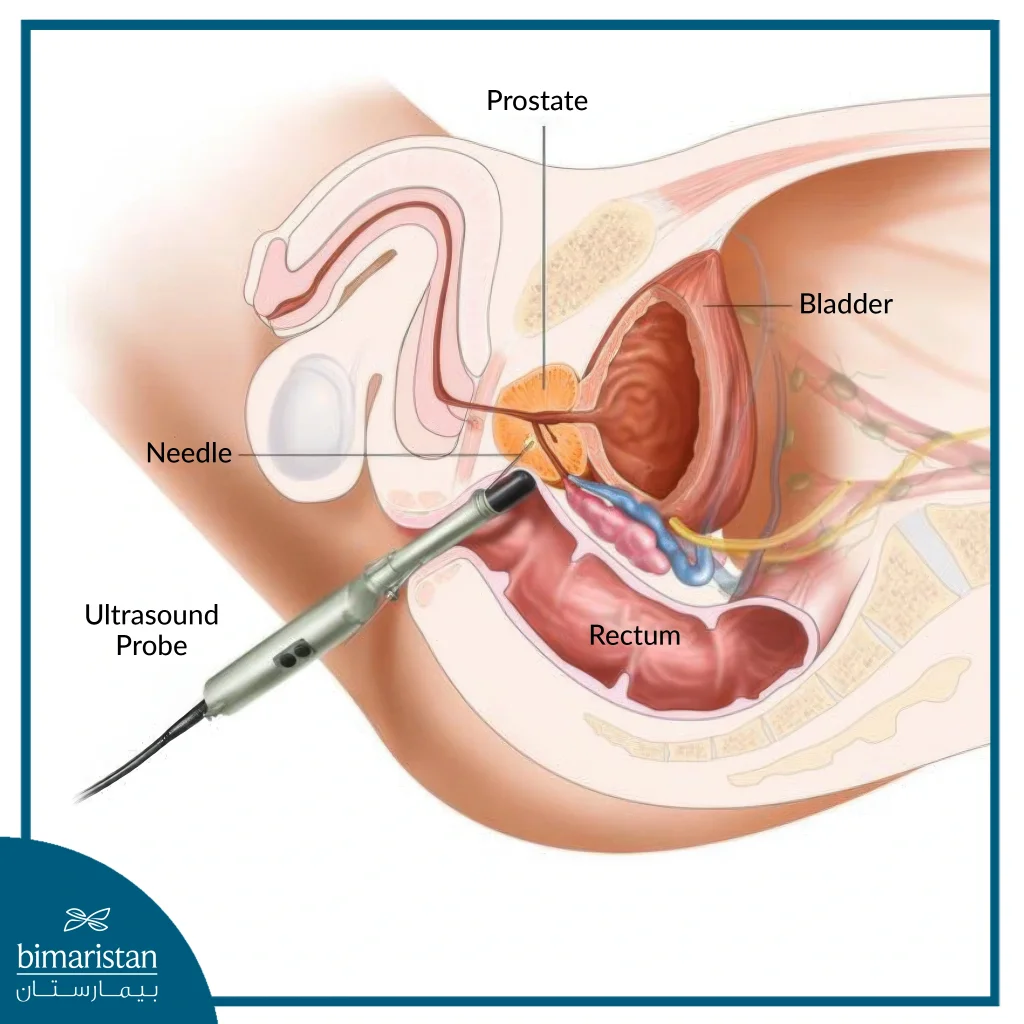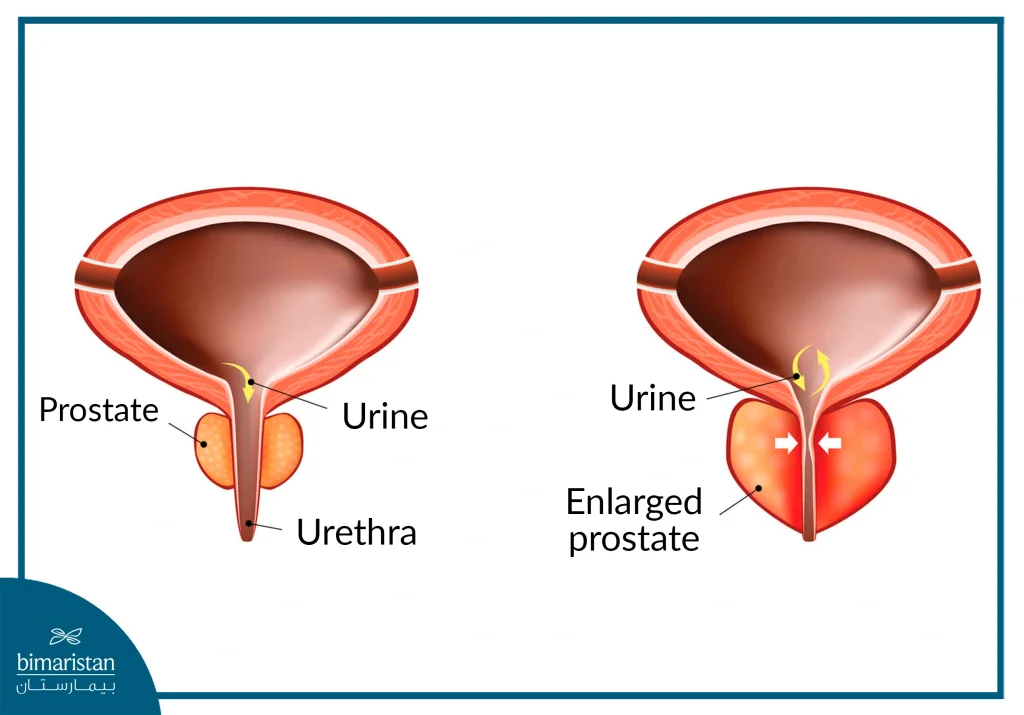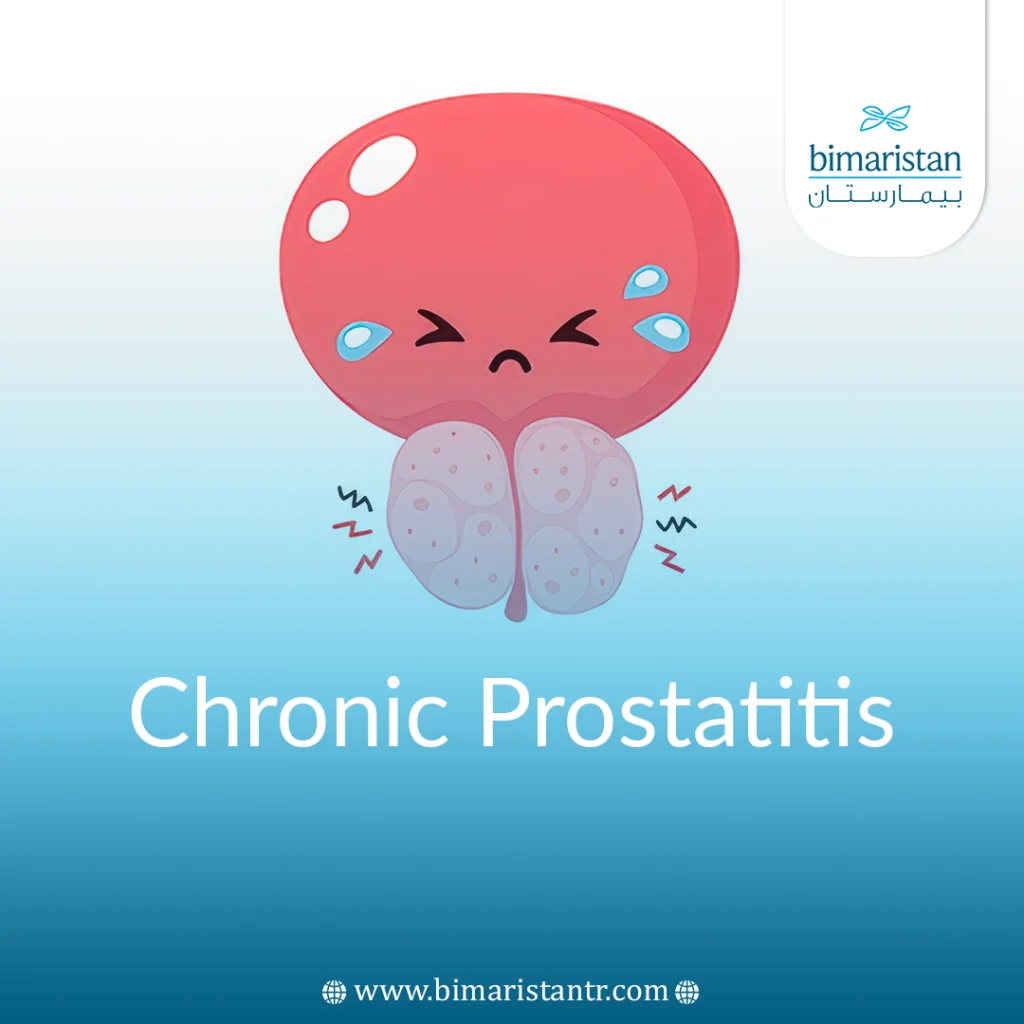Chronic prostatitis is a serious and significant condition for men, as it can lead to prostate cancer and sexual dysfunction. Turkey is an excellent place to treat this condition.
Chronic prostatitis treatment is no longer impossible, as it can now be effectively treated in Turkey using the latest global methods. Since the symptoms of chronic prostatitis are deceptive and overlap with many diseases that cause pelvic pain, diagnosing this condition requires the expertise of the best hands in Turkey.
Chronic prostatitis treatment can prevent many complications associated with this condition. Patients often have several questions for their doctor, such as what is the strongest antibiotic for chronic prostatitis and whether chronic prostatitis can be cured entirely. Follow along in this article.
What are the treatment options for chronic prostatitis in men?
Prostatitis is a common and often painful condition that can affect men of all ages.
Pelvic pain in and around the prostate may be caused by:
- Bacterial infections.
- Inflammation of the area (redness, swelling) due to injury or infection.
- Other issues.
The prostate is a small, walnut-shaped gland that is part of the male reproductive system. It is located below the bladder and in front of the rectum, surrounded by muscles and nerves. The urethra (the tube that carries urine and semen out of the body) passes through the prostate gland.
The main function of the prostate is to help produce the fluids necessary for semen. This fluid protects and nourishes the sperm until it reaches the egg.
Is prostatitis dangerous?
Yes, prostatitis can be dangerous if not treated properly. This inflammation can lead to several serious health problems, including:
- Chronic prostatitis: It can cause persistent pain and affect quality of life.
- Sexual dysfunction: Chronic inflammation can affect sexual function and cause problems such as erectile dysfunction.
- Acute prostatitis: If acute prostatitis is not treated quickly, it can lead to complications such as the formation of an abscess in the prostate or the spread of infection to the bloodstream.
- Prostate cancer: There is some evidence that chronic inflammation may increase the risk of developing prostate cancer, although the relationship between them is not entirely clear.
- Urinary problems: Prostatitis can cause problems such as pain when urinating, frequent urination, and difficulty emptying the bladder.
It is important to see a doctor when symptoms of prostatitis appear to get the appropriate diagnosis and treatment.
Prostatitis symptoms for young people and the elderly
These symptoms vary depending on the type of prostatitis. The symptoms of chronic prostatitis differ significantly from those of acute prostatitis, especially if the inflammation is associated with other conditions.
There are four types of prostatitis:
1. Chronic prostatitis/Chronic pelvic pain syndrome (CP/CPPS)
CP/CPPS is the most common type of prostatitis, but it is not an infection. Patients usually present with urinary problems, pain, and burning sensations. There may also be pain in the bladder, testicles, penis, and during ejaculation, along with erection issues.
2. Chronic Bacterial Prostatitis
Chronic bacterial prostatitis is an uncommon type and requires a culture of urine and prostate bacteria to check for this type of inflammation.
The most important sign is that it comes and goes repeatedly over a long period of time.
The patient often comes with a burning sensation during urination and has urgency incontinence in addition to foul-smelling discharge from the penis with foul-smelling urine due to infection.
Ejaculation pain is common, and the infection may have spread to the rest of the organs, so treatment must be done quickly.
3. Acute bacterial prostatitis
Acute bacterial prostatitis is also an uncommon type of bacterial prostatitis, requiring a urine test to see if there are any bacteria.
Symptoms also appear suddenly and can sometimes be painful.
Symptoms of acute simple prostatitis include:
- Chills
- Fever
- Very painful burning during urination
- Difficulty emptying the bladder
4. Nonbacterial \ Asymptomatic inflammatory prostatitis
Asymptomatic inflammatory prostatitis is inflammation without symptoms; it is not an infection and presents no noticeable symptoms.
Read also about: Benign prostatic hyperplasia

Prostatitis causes in men and young adults
The causes of most cases of prostatitis are not well understood. In many instances, local inflammation in the prostate irritates the nerves and muscles in the pelvic area, causing pain. Less commonly, bacterial infection is the cause. It may take several tests to pinpoint the exact cause.
Bacterial prostatitis results from a bacterial infection in the prostate. Bacteria can enter the prostate when infected urine containing germs flows backward from the urethra.
Nonbacterial prostatitis may be linked to stress, nerve inflammation, or irritation following a urinary tract infection. It can also occur if the body continues to react to a past infection or injury. This form of prostatitis does not show signs of bacteria in the urine or semen.
Other causes of pelvic pain:
- Pelvic muscle tension
- Prostatic calculi (prostate stones)
- Urethral stricture (narrowing of the urethra)
- Prostate cancer
- Pressure from benign prostatic hyperplasia (BPH, non-cancerous prostate enlargement)
Diagnosis of prostatitis in Turkey
Each type of prostatitis requires different treatment.
Your doctor will want to determine the exact cause of your symptoms, and several tests may be used to do this.
- Medical History and Physical Exam: Digital Rectal Exam (DRE): The doctor manually examines the prostate through the rectum by pressing and feeling it to check whether its size is normal or if it is enlarged, hard, or tender. This can help predict prostate cancer.
- General Tests
- Ultrasound Imaging
- Urine and Prostate Fluid Tests: During a DRE, the doctor may express a fluid called expressed prostatic secretion (EPS) from the penis. Urine and EPS are examined to check for bacterial infection or inflammation.
- If there is a risk of cancer, a blood test to check the level of prostate-specific antigen (PSA) may be ordered. However, PSA levels can be slightly elevated with a prostate infection.
- Cystoscopy: This procedure involves examining the urinary tract using a long, thin telescope with a light at the end.
- Urodynamic Studies: Tests to measure the speed of urine flow.
Duration of chronic prostatitis treatment
The treatment of chronic prostatitis depends on the type you have.
For acute bacterial prostatitis, you will need to take antibiotics for at least 14 days, and almost all acute infections are treated this way. Sometimes, you may need to stay on antibiotics for up to four weeks. If one antibiotic does not work, your doctor will try another type.
Bacterial type of chronic prostatitis treatment in Turkey/Istanbul
For chronic bacterial prostatitis, you will need to take antibiotics for a longer period, often for 4 to 12 weeks. About three-quarters of chronic bacterial prostatitis cases are treated this way. For cases that do not respond to this treatment, low-dose long-term antibiotics are used to relieve symptoms.
What is the strongest antibiotic for treating chronic prostatitis?
The strongest antibiotic to treating chronic prostatitis is the one chosen after bacterial cultures identify the causative bacteria, allowing for the use of an appropriate antibiotic. Recent studies have shown the efficacy of the antibiotic Fosfomycin in treating chronic bacterial prostatitis.
Treatment of chronic prostatitis with chronic pelvic pain syndrome (CP/CPPS)
Since the exact cause of CP/CPPS is unknown, some doctors may prescribe antibiotics even if tests do not show bacteria as the cause. Doctors may also prescribe anti-inflammatory drugs or medications that reduce nerve pain.
Alpha-blockers for treating chronic prostatitis
Some doctors prescribe medications called alpha-blockers to help you feel better. These drugs help relax the muscles around the prostate and the base of the bladder.
Anti-inflammatory agents for chronic prostatitis treatment
Anti-inflammatory medications (NSAIDs), such as pain relievers like aspirin, ibuprofen, and muscle relaxants, may make you more comfortable.
Prostate massage for chronic prostatitis treatment
Prostate massage can help relieve pressure in the prostate by expressing fluids from the prostate ducts, while physical therapy may relax nearby muscles.
Home remedies and other techniques to reduce pain
Hot baths, hot water bottles, or warm compresses can also help relieve pain.
Relaxation exercises and dietary care may also alleviate some symptoms. Your doctor may suggest avoiding certain foods and drinks, including spicy or acidic foods, caffeinated beverages, or alcohol.
Your doctor may also recommend drinking more water, eating more fresh/unprocessed foods, and consuming less sugar. They may also advise against activities that could worsen your pain (such as cycling).
Herbal treatment of chronic prostatitis
There is no evidence that herbs and dietary supplements improve prostatitis. Options that have been tried and failed to help prostatitis include commercial herb (Cernilton), a chemical found in green tea, onions, and saw palmetto extract. Supplements can affect other treatments, so if you want to try herbal supplements, please inform your doctor first.
Acupuncture treatment for chronic prostatitis
Some men use acupuncture to reduce pain. Acupuncture involves inserting very thin needles through the skin at varying depths. However, there is currently no scientific evidence supporting this method.
Surgery for chronic prostatitis
In rare cases, surgery on the urethra or prostate may be necessary. There must be a specific problem, such as a scar in the urethra or complete removal of the prostate through the urethra.
Most cases of acute bacterial prostatitis are treated with medication.
Unfortunately, CP/CPPS is not easily treated. In most CP/CPPS cases, even if antibiotics are used, the medications may struggle to reach and kill bacteria deep within the prostate.
Latest methods for prostatitis treatment permanently in Turkey
Turkey has seen significant advancements recently. It is focusing on developing and modernizing its hospitals and training specialized medical personnel in all fields to provide the best medical service at the best prices.
Among the modern treatment methods in Turkey are:
Transurethral microwave therapy (TUMT) for chronic prostatitis treatment
New treatment methods in prostate treatment
Non-surgical TUMT treatment
It is used in patients with prostate enlargement or chronic prostatitis, where effective, safe, and permanent results are obtained without surgery.
Transurethral radiofrequency therapy of the prostate
It is a minimally invasive treatment method that uses microwave energy to shrink the parts of the prostate tissue that are suffering from enlargement and to eliminate the inflamed tissue in chronic prostatitis.
Transurethral microwave therapy (TUMT)
It is a procedure performed in the outpatient clinic to treat urinary symptoms resulting from prostate enlargement. In this treatment, the doctor inserts a urinary catheter with a microwave generator on its tip through the urethra.
The catheter is sent through the urethra; TUMT uses a part that carries a dose of microwave energy and heats and destroys excess prostate cells.
The goal of treatment is to reduce the size of the prostate and improve symptoms. Transurethral microwave therapy (TUMT) offers effective, reliable, and permanent solutions, and the patient can go home on the day of the transurethral microwave therapy.
With this treatment method, it is also possible to treat prostate enlargement, as the success rate of treatment is 90% via transurethral thermotherapy (TUMT) without surgery.
With this treatment, prostates weighing more than 100 grams can be easily treated. Studies have shown that the treatment is successful even in prostates weighing 150 grams. The largest prostate treated so far is 287 grams.
According to a study conducted in Belgium, the success rate of chronic prostatitis treatment is about 88% for patients whose conventional methods have not been cured.
Read also on our website about: Prostate cancer treatment with ultrasound.
Prostate injections to treat chronic prostatitis

In patients with chronic bacterial prostatitis and fibrous areas in the prostate, a combination of antibiotics and cortisone is injected directly into these areas.
While conventional antibiotic treatments may cure for a limited period, there is a high risk of recurrence of infection in these foci. The antibiotic administered into the prostate is 2500 times higher than taken orally or intravenously. This increases the healing power.
In Turkey, many studies have been developed to find out the causes of prostate enlargement at an early age, in addition to many different treatments for benign prostatic hyperplasia or prostate cancer with several different surgical approaches and methods such as:
- Laser treatment of prostate enlargement in Turkey
- Catheter treatment of prostate enlargement
- Robot prostatectomy
- Steam treatment of prostate enlargement without surgery
My experience with chronic prostatitis
Henry Astaire (a patient with pelvic pain and chronic prostatitis) shares his story and experience with chronic prostatitis, saying:
I thought I had prostate cancer, especially since people my age are highly susceptible to this disease, but the results were negative and I remained confused about the cause of the pain, and the doctors prescribed several antibiotics for me, and most of them did not work. I read several books and articles about my condition and found that meditation and exercise were the best solution for me and that I looked at the pain from a different perspective, and I discovered that the pain increases due to pressure and tension, and chronic prostatitis remains a drug or surgical treatment in most cases.
Best antibiotic for prostatitis
Some common antibiotics used to treat prostatitis include:
- Floxacin
- Levofloxacin
- Cefproxacin
- Doxycycline
- Tamsulosin
In addition to antibiotics, your doctor may prescribe other medications to relieve symptoms, such as:
- Pain relievers: such as ibuprofen or naproxen.
- Alpha-blocker medications: help relax the muscles of the bladder and prostate, which may make urination easier.
- 5-alpha-reductase inhibitors: reduce the size of the prostate.
Read more about: Transurethral Resection of the Prostate in Turkey
The Shape of an Inflamed Prostate

Additional facts about chronic prostatitis treatment
- Getting the right diagnosis is the key to taking care of prostatitis.
- Prostatitis does not always involve the prostate; the problem may be in the nearby tissues.
- There is still a possibility, albeit a very small one compared to the old treatments, that you will not be cured of prostatitis, but its symptoms can be managed.
- You should follow the treatment even if you feel better.
- Patients with prostatitis are at a higher risk of developing prostate cancer, according to studies.
- There is no reason to stop regular sex unless it bothers you.
- You can live a reasonably normal life with prostatitis.
In the end, we find that there are several treatment methods for chronic prostatitis in Turkey, and that chronic prostatitis has become a simple condition that can be treated unlike before, and it remains to rely on the patient’s cooperation with the doctor to get rid of this annoying disease.
Read about: The best ways to treat prostate enlargement in Turkey
Tips for living with prostatitis
Chronic prostatitis is a medical condition that may cause annoying symptoms, such as pain in the pelvic area or genital area, difficulty urinating, and problems with intercourse.
Although there is no cure for chronic prostatitis, there are several ways men can manage their symptoms and improve their quality of life.
Treatments:
- Drug treatments:
- Nonsteroidal anti-inflammatory drugs (NSAIDs): such as ibuprofen or naproxen to relieve pain and inflammation.
- Alpha-blockers: to help relax bladder muscles and improve urine flow.
- Antibiotics: if there is a bacterial infection.
- Physiotherapy:
- Pelvic floor muscle exercises: to strengthen bladder muscles and improve urinary control.
- Alternative treatments:
- Heat: Use warm baths or warm compresses to relieve pain.
- Massage: massaging the pelvic area to relieve tension and pain.
- Acupressure: may help relieve pain.
Lifestyle changes:
- Dietary changes:
- Avoid caffeine, alcohol, and spicy foods, which can irritate the bladder.
- Drink plenty of fluids, especially water, to help flush the bladder and prevent infection.
- Reduce stress:
- Practice relaxation techniques, such as yoga or meditation.
- Get enough sleep.
- Exercise regularly:
- Improve overall health and fitness
Read about: Symptoms of enlarged prostate in men and ways to treat it
Ways to prevent prostatitis
- Maintain personal hygiene:
Make sure to keep the genital area clean.
Wash your hands well before and after using the toilet.
- Urinate regularly:
Avoid holding urine for long periods, and try to urinate regularly to avoid bacteria buildup in the bladder.
- Drink plenty of fluids:
Drinking enough water helps clean the urinary system and reduces the risk of infection.
- Healthy diet:
Eat foods rich in fiber, such as fruits and vegetables.
Avoid spicy foods and excess fats that may irritate the prostate.
- Exercise:
Exercising regularly can improve blood circulation and promote prostate health.
Pelvic floor exercises (Kegel exercises) can help strengthen the muscles surrounding the prostate.
- Avoid stress and tension:
Practice relaxation techniques such as yoga or meditation to reduce stress and tension that can affect prostate health.
- Regular medical follow-up:
Conduct periodic check-ups with your doctor to ensure the health of your prostate.
Consult your doctor if you experience any abnormal symptoms, such as pain or difficulty urinating.
Read more related articles:
Prostate hypertrophy treatment with holmium laser in Turkey
Prostate vaporization without surgery in Turkey
Sources:
